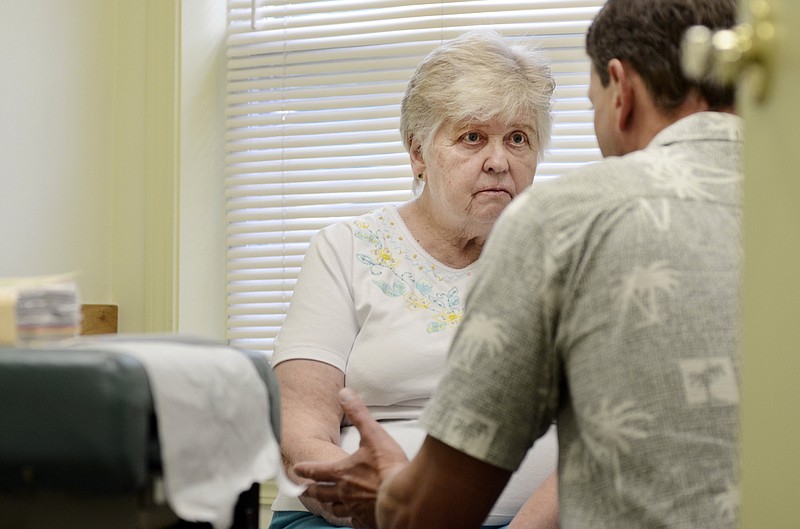Medicare, the federal program that insures 55 million older and disabled Americans, announced plans last week to reimburse doctors for conversations with patients about whether and how they would want to be kept alive if they became too sick to speak for themselves.
On one hand, this is great news. It indicates that medical professionals and insurers are finally taking seriously Americans' need to have frank talks with our doctors about end-of-life care.
But on the other hand, it is preposterous news.
Why in the world should doctors be paid separately for having a conversation they should be having anyway with patients during the course of a normal visit - be it for a terminal illness or a routine wellness appointment?
The answer, sadly, is that only the perk of a new policy offering additional payment will prompt many doctors to engage patients in discussions about their end-of-life needs and preferences - especially in an era when too many doctors complain about too much Medicare paperwork and not enough reimbursement.
On the bright side, the plan comes as many patients, families and health providers are pushing to give people greater say about how they die - whether that means trying every possible medical option to stay alive or discontinuing life support for those who do not want to be sustained by ventilators and feeding tubes.
The proposal also would settle a stale debate that raged before the passage of the Affordable Care Act, when Sarah Palin labeled a similar plan as tantamount to setting up "death panels" to cut off care for the sick.
The following year, Medicare decided through its regulatory powers to allow coverage for "voluntary advance care planning" in annual wellness visits. But eventually the Obama administration just rolled over to the political pressure of Palin-like noise, deciding instead to rescind that part of the regulation.
This time, the new Medicare plan is expected to be approved and take effect in January, though it will be open to public comment for 60 days.
Because Medicare often sets the standard for private insurers as well, the new policy will likely prompt many private insurers to consider similar policies.
File this under journalistic accuracy
Journalists catch grief often - occasionally rightly so, but not often - about mistakes or mischaracterizations.
But consider this New York Times special effort to swim upstream and be correct even when most other media headlines and stories trending on Google over the June 28 SpaceX Falcon 9 rocket "explosion" were not.
The Times' science story on June 30 was headlined "Why We Aren't Calling the SpaceX 'Explosion' an Explosion."
Quoting science writer Kenneth Chang: "The demise of SpaceX's Falcon 9 rocket less than three minutes after its launch on Sunday certainly looked a lot like an explosion. But the reason that The New York Times articles on the event do not currently contain the word 'explode' has to do with combustion. An explosion, at least technically, is a rapid combustion where gases expand outward. But at about 28 miles up, there is much less oxygen in the air to combust, so it is unlikely the rocket actually exploded."
The story went on to explain that SpaceX was still investigating precisely what happened. The problem appeared to be too much pressure in the liquid oxygen tank of the second stage. Eventually, the rocket's structure failed, and the pressure of traveling at 3,100 miles per hour tore the rocket apart.
"Thus, it is more accurately described as a breaking up, disassembling or disintegrating rather than exploding," Chang wrote. "Perhaps you can file this away as an example of a clash between technical precision and Google search."
Accuracy is sometimes very, very picky.
